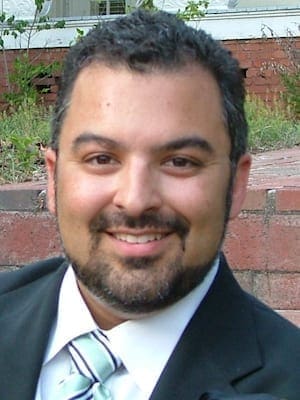I’ve been a pastor long enough to realize that growth in most churches is the result not of people becoming believers but of what I call the “Great Christian Migration.”
It’s the trend in which Christians move from church to church. Whatever church is new and fancy is often the one that garners the most Christians.
Denominational trends have reflected this migration for years, and nearly a quarter of Christians now attend a church not affiliated with any denomination.
The fastest growing churches are those with contemporary worship, a founding pastor or both.
Yet, the number of Christian converts remains stagnant and the number of baptisms has decreased. Church attendance in this century is at an all-time low.
When I talk to people who are merely moving from church to church, I realize that we have forgotten some fundamental truths along the way.
First, no matter where a person goes to church, that person still has to take responsibility for having a personal relationship with God.
We have come under the false notion that having a particular experience, learning from a specific pastor, reading the newest Christian best-seller or worshipping a certain way will somehow do the work of getting us to be more intimate with God.
Those Sunday morning pop-culture routines can only fuel a spirit-filled life with Christ so far.
No book, church, worship experience, pastor or social gathering can replace the invaluable spiritual practices of daily prayer, Bible reading and communion with God.
Sunday attendance is not the first place to meet God; it is the place to celebrate where Christians have met God throughout the week.
If you are not experiencing God during the week, there will be little that you can gain from attending church once or twice a week.
Second, churches are places that provide opportunities for people to serve, not be served.
Whenever the Bible talks about the body of Christ, it refers to the sharing of lives, gifts and resources. The very word used for church worship, “liturgy,” comes from the root word for “work” in the Greek.
Church is about working on behalf of God’s kingdom together; it was never intended to be a place to come and “get fed.”
If you are looking to get something from church rather than give something or work on God’s behalf to spread the gospel, you’re better off going to Starbucks.
Third, church loyalty is profoundly meaningful because it gives Christians time to build authentic, vulnerable communities.
The truth is church-hopping does not provide the longevity and trust needed to build life-long accountability partners and spiritual friendships in which God shows up in new, creative ways.
With the advent of social media, technology and extracurricular activities, families have very little time to socialize, build authentic community and deepen friendships.
Studies show that people, when they do have the time to socialize, now group up in like-minded cliques that only reinforce their ideas rather than challenge them.
Attendance in intentional discipleship efforts, like Sunday school and Bible studies, is also down.
These are the very places that challenge beliefs, develop well-rounded, educated Christ-followers and inspire missions and calls to full-time ministry.
Spiritual friendships and deep, abiding relationships have always been the primary way to grow in Christ as people mentor one another, keep each other accountable and talk about the “deep things” of God. But church-hopping does not promote these relationships.
The church in America is at a tipping point. People will need to take responsibility to foster the things that have always been – and will always be – the primary ways that help maturation in faith in Christ: stability, friendships, intentional community and daily interactions with God.
Without such things, Christians who move from church to church will always be discontent and frustrated with what they find.
 Joe LaGuardia is senior pastor of Trinity Baptist Church in Conyers, Georgia. He blogs at Baptist Spirituality, where a version of this article first appeared.
Joe LaGuardia is senior pastor of Trinity Baptist Church in Conyers, Georgia. He blogs at Baptist Spirituality, where a version of this article first appeared.
Joe LaGuardia is senior pastor of First Baptist Church in Vero Beach, Florida.

